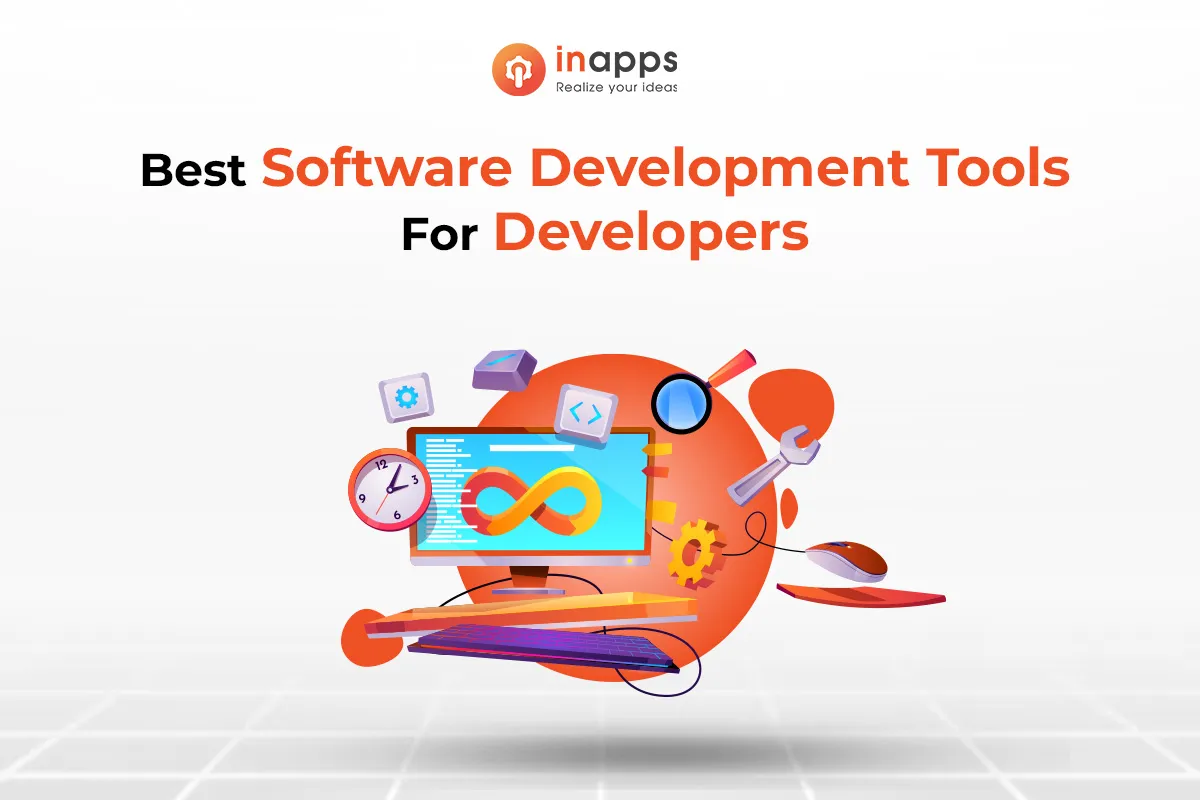- Home
- >
- Software Development
- >
- Top 20 Software Tools for Efficient Software Development
Software Tools for Software Development, also known as software programming tools, is a computer program used by software developers to create, edit, manage, support, and debug other applications, frameworks, and programs.
Developers and businesses are always searching for the best programming tools to make life easier. The appropriate tools can help you get the most out of every day swiftly, but selecting the best armory isn’t easy. In this article, you will learn which software tools developers use to create the most up-to-date and feature-rich applications.
So, let’s have a look!
20 Best Software Tools For Efficient Software Development
1. Atom
Created by GitHub, Atom is a popular text editor tailored for software development, known for itsatom and flexibility. As an open-source IDE, it supports all major operating systems, ensuring wide accessibility. What sets Atom apart is its extensive range of third-party integrations and customization options, catering seamlessly to the varied needs of developers.

Atom friendly UI
Autocomplete is one of Atom’s great attributes, as it makes writing code quicker and easier. Furthermore, its browser function simplifies project file management by enabling you to divide the Atom interface into numerous panes to view, edit, and compare files at the same time.
Pros
- Free and Open Source: Accessible to everyone and can be modified by the community.
- Cross-Platform Compatibility: Works on various operating systems.
- Community Support: Strong community providing constant updates and new packages.
- Ease of Use: User-friendly for beginners yet powerful for advanced users.
- Rich API: Allows developers to create new packages easily.
Cons
- Performance: Can be slower compared to other editors, especially on startup.
- Resource-Intensive: May consume more system resources, affecting users with less powerful hardware.
- Overwhelming for Beginners: The vast array of features and customizations can be overwhelming for new users.
- Discontinued Development: As of 2022, GitHub announced that they are no longer actively developing Atom.
All in all, Atom is the best option for everyone who loves to code and wants simple stuff, as it supports every Popular Programming Language and Framework.
2. GitHub
GitHub is without a doubt the most widely used software development platform. It’s a web-based Git repository hosting service that acts as a Google Drive for people looking for code. You can submit (public or private) your work to the site to keep them safe or share them with others.

Github has collaborative features like branch management and pull requests that are pivotal for team coding. Its robust toolset extends to issue tracking and code reviews, streamlining the development process. Moreover, it boasts advanced features like GitHub Actions, which enable the automation of workflows, from simple tasks to complex CI/CD pipelines. The platform’s ability to seamlessly integrate with a multitude of tools and services, such as continuous integration tools and cloud platforms, makes it a versatile hub for developers.
The project foundation is excellent, and the community is quite large. It’s a terrific spot to go if you’re searching for a spot to work on a project together. GitHub is not a software development tool in the traditional sense, but it can assist you in the process.
3. Chrome DevTools
Chrome DevTools is a collection of web authoring and debugging tools integrated directly into the Google Chrome browser for web developers. DevTools enables you to debug Javascript in the browser, experiment with CSS on your website pages, and analyze the front-end effectiveness of your application.
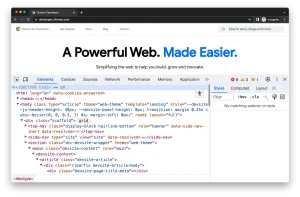
You can effortlessly examine and alter the DOM, assess a website’s assets, load, and efficiency, take account of the page’s memory use, and so much more with Chrome DevTools. Anyone functioning in the web domain should have this tool.
For security-conscious developers, it provides insights into security issues, helping to ensure that web applications adhere to best practices. Performance monitoring tools within DevTools allow developers to pinpoint bottlenecks in their applications, making it easier to optimize for speed and efficiency.
All these tools are easily accessible in the Chrome browser, making it a go-to resource for efficient web development and debugging.
4. Buddy
Buddy is a web developer’s software development tool. To deploy, test, and develop applications, the tool makes use of delivery pipelines. The pipelines are simple to use because of a one-of-a-kind action system that allows you to combine them in whatever way you choose. When it comes to deployments, it strikes the mark. The configuration should take no more than 15 minutes.
Buddy allows for the easiest Continuous Integration (CI) and Continuous Deployment (CD). It streamlines your workflow by automating the build, test, and deployment phases every time there’s a tweak in the code. What this means is that your new code blends seamlessly into the existing system and gets deployed smoothly. The result? A more streamlined, efficient process that cuts down on errors, keeping everything running like a well-oiled machine

Another great feature of this software engineer tool is that it covers a vast range of frameworks, task managers, and languages and executes builds in separate containers. The integration function is the cherry on top. It integrates with WordPress, Google, and AWS, among other platforms.
Moreover, Buddy shines in the way it handles build executions, using isolated containers to guarantee each build is both consistent and reliable. This feature is a game-changer, as it sets up each build in its controlled environment. What this means for you as a developer is a smoother workflow, with fewer surprises or hiccups caused by inconsistent development settings.
However, Buddy relies on a visual interface for pipeline configuration. While this feature is often praised for its ease of use and intuitiveness, it may not appeal to all developers, particularly those who prefer scripting or coding their pipeline configurations. This group might find Buddy’s GUI-based approach less flexible or less powerful compared to script-based CI/CD tools, where they have more control over the fine details of the pipeline configuration.
5. IntelliJ IDEA
IntelliJ IDEA is a Java-based IDE for developing Java applications, so it’s one of the most often used software tools by Java programmers. Built-in version control, an integrated terminal, debuggers, and other developer tools are all included in this JVM-centered IDE.

IntelliJ IDEA is highly adaptable as you can extend its functionalities by adding plugins. By accessing a wide array of plugins from the JetBrains marketplace, you can tailor the IDE to your specific needs. These plugins cover various aspects, from additional language support (like Python, PHP, JavaScript) to tools for database management, version control systems, and even frameworks like Spring and Angular.
IntelliJ IDEA steps up the game with its top-notch code refactoring tools. These aren’t just any tools; they’re smart enough to grasp the subtleties of the languages you’re working with. This means you can tweak your code’s structure or rename elements with confidence, knowing that you won’t accidentally derail your project’s functionality.

And when it comes to code analysis, IntelliJ IDEA goes the extra mile. It’s not just about catching errors; it’s about guiding you toward more efficient, cleaner code. The IDE offers tips on optimization and best practices, turning everyday coding into a chance to learn and uphold high coding standards. It’s like having a wise coding mentor right at your fingertips, constantly helping you refine your skills and code.
If you like to multitask, IntelliJ IDEA may not be the ideal programming tools. IntelliJ IDEA is known to consume significant system resources, including memory and CPU. This can lead to slower performance, particularly on less powerful machines or systems with limited resources. For developers working on such systems, this might result in a less smooth coding experience, with potential issues like lagging, longer loading times, and delayed response to inputs.
6. HTML5 Builder
HTML5 Builder, which is used to create mobile and online apps, has a lot to offer. It’s adaptable and one of the quickest software development tools available. It allows developers to quickly prototype and iterate their applications, making the process of testing and refining app features more efficient. This rapid prototyping feature is particularly beneficial in agile development environments where speed and flexibility are key.

It makes it simple to create cross-platform programs and is quite effective in collaborating. It provides features that facilitate team collaboration, such as version control integrations and project-sharing capabilities. This makes it easier for development teams to work together on projects, share resources, and maintain consistency across their work, regardless
Because of the built-in geolocation features, many developers can integrate location-based services to build apps that necessitate geolocation. This is particularly useful for creating apps that require tracking, navigation, or location-based content delivery. Besides geolocation, the tool offers other mobile-specific features like touch event handling, camera access, and accelerometer support, making it ideal for comprehensive mobile app development.
7. Azure
For many programmers who want to develop, administer, and build web apps, Azure is the way to go. This software engineer tool is very quick and enables a wide number of programming languages, devices, frameworks, and operating systems.

The system’s capacity to identify and eliminate risks is our favorite Azure feature. This is why Azure is often the go-to choice for developing applications in sectors like banking and finance, where data security and privacy are paramount.
Azure’s cloud technology not only provides scalable computing resources but also ensures your applications are always available and running smoothly. This approach to cloud-based scalability means your apps can easily adapt and grow with increasing demands, without the need for any major changes in your infrastructure. It’s a seamless way to scale, keeping things simple yet effective.
8. Vim
Vim isn’t just any text editor; it’s a powerhouse for those who master it. Built right into Unix systems, it offers a unique editing experience that’s keyboard-driven, making it incredibly fast and efficient once you get the hang of it. Unlike typical GUI-based editors, Vim strips away the frills, putting raw text manipulation power at your fingertips. This makes it a go-to tool for developers who love efficiency and customization.

Vim has a rather steep learning curve and, because of its total lack of UI, might make a bad first impression. Vim can boost your development efficiency and give a flawless cross-platform experience if you take the time to learn it.

This useful tool for developers is especially powerful for programming tasks that require frequent text editing and file manipulation. With Vim, repetitive tasks can be automated with a few keystrokes, turning hours of work into minutes. For the developer who values speed and precision, Vim is more than an editor; it’s an essential tool that evolves with your skills
9. Visual Code Studio
Among the most prevalent code, editors for software developers is Visual Studio Code (commonly known as VS Code). It’s a robust open-source code editor with features like code completion (IntelliSense), syntax highlighting, auto-indentation, and an in-built command-line interface, among others.

Visual Code Studio
Using extensions, plugins, and templates from the Extensions Marketplace, you can effortlessly personalize VS Code. It has a nice user interface and has Git integration. This means managing your version control right from the editor, making your coding and collaboration process much more efficient.
A vast array of programming languages and frameworks are supported by the tool. VSCode is a one-stop solution for practically all software development operations thanks to its built-in numerous terminal access.
10. Stack Overflow
Stack Overflow is a developer-focused community where users can ask and answer questions. It assists in the debugging and resolution of problems. There’s a good probability that the other developer has run into the same issue you have. Stack Overflow offers an excellent way to address it and find a solution.

Numerous individuals monitor and review the content on this site, but if you have any doubts about a post’s legitimacy, you can always leave a remark for more information. With over 10 million developers participating, Stack Overflow is among the largest communities. No matter how niche or complex your query might be, in this extensive community, you’re likely to find someone who can shed light on your problem.
11. Zoho Creator
Zoho Creator is a low-code platform that helps you build strong enterprise software applications 10x quicker by enabling quick development and implementation of online and mobile apps. To create an application, you no longer need to write countless lines of code.
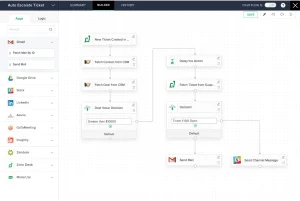
Artificial Intelligence, JavaScript, Cloud functionalities, third-party integrations, multi-language assistance, offline mobile services, payment gateway integration, and more are all included. With built-in Artificial Intelligence, comprehensive JavaScript support, and robust cloud functionalities, your applications aren’t just efficient – they’re smart.
It’s trusted by over 4 million users worldwide and has been the foundation for more than 60 different apps. The platform’s ability to integrate payment gateways and other business-critical services is driving companies to operate more effectively, streamline their processes, and enhance their customer interactions.
12. Docker
Docker is a framework for developing programs that operate in containers, which are compact execution environments that share a kernel but execute in isolation. The software is an open-source containerization strategy that has aided in the widespread adoption of the technology.

This platform is also well-known for its compatibility with continuous integration and deployment (CI/CD). Containerized apps may be easily moved from on-premises to cloud environments or from a developer’s computer to a server. This adds to the deployment process’s simplicity.
As an open-source platform, Docker doesn’t just benefit from widespread adoption; it thrives on community input and collaboration. Developers around the globe contribute to its continuous improvement, ensuring that Docker stays at the forefront of containerization technology.
13. LXC
Linux Containers are a means of executing independent Linux containers in a unified Linux kernel hosted by a single host. Kernel groups in LXC enable users to restrict and prioritize resources without having to actively manage the virtual machine. By offering different process IDs, networks, and user groups, LXC separates containers from the kernel.
LXC is among the most user-friendly tools for setting up Linux containers. It’s open-source, which implies it’s under active and rapid development.
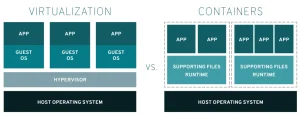
Linux containers vs traditional virtualization
For administering your containers via your apps, LXC provides a powerful API. This makes it incredibly easy to manage your containers programmatically, giving you the flexibility to automate and streamline your workflows. Whether you’re starting, stopping, or managing container resources, LXC’s API puts control right at your fingertips, making container management a breeze.
In the end, LXC is less expensive than traditional virtualization. By utilizing containers, LXC reduces the need for heavy hardware resources that typical virtual machines require. This translates to lower costs in terms of hardware investments and operational expenses. So LXC is an economical choice for both small-scale projects and large enterprise deployments.
14. JIRA
Jira is a project management tool that is compatible with the agile methodology. It allows you to keep track of the project backlog, and release status, and adjust the workflow for unique use cases like bug resolution and patching.
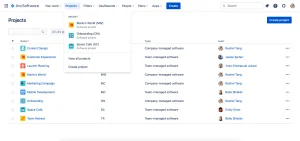
Introduction to Jira software – Useful tools for developers
Jira provides tools for DevOps teams that encompass all phases of the software deployment process, as well as specifications and testing management. To provide a smooth hands-on experience for software teams, the tool features remote APIs and can interact with most third-party apps. It offers a free subscription for up to 10 members, beyond which it charges $7 per person.
15. Raygun
Raygun enables you to keep track of application performance from a single location. Crash reports, real-time user tracking, and finding application performance bottlenecks are all made easier with it. It mostly monitors.NET and Ruby on Rails apps. It’s also compatible with Jira and Github.

You may limit the amount of cacophony in your alerts using Raygun by customizing them by machine name, IP address, hostname, program version, and other factors. Raygun provides code-level insight on bugs and works well with your source code to highlight problematic lines. Overall, Raygun is a great option for people who want total power over their traces and alarms.
16. Axure
Axure software tool makes creating documentation, prototypes, and wireframes simple. It’s most commonly used by IT consultants, product managers, and business analytics professionals, but it can also be valuable for developers, that’s why it’s included on this list of useful tools for developers.
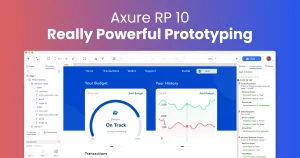
The platform makes creating and managing widget libraries a breeze. Axure includes some useful sharing factors that allow it to be a useful collaboration tool. Its collaborative tools ensure that everyone stays on the same page.
For example, Axure Cloud allows team members to publish Axure RP files to the cloud and share them with colleagues and stakeholders. Users can view and interact with prototypes and inspect designs right in the browser. This way, each member can provide instant feedback and discussion.
17. Cloud9 IDE
Are you having difficulties with programming languages? This software engineering tool named Cloud9 IDE will be the solution to your difficulties.
Users can replicate complete environments with ease using this online integrated environment application. Python, Perk, Ruby, PHP, C, and JavaScript are among the languages supported by Cloud9 IDE.

It’s simple to use and can be used to save time by setting breakpoints. The Code Completion part is the cherry on top, as it provides solid ideas for coding faster. Unlike the majority of other alternatives, this one is designed for beginning users and has a built-in terminal with a command-line wizard.
18. Linx
Linx is a low-code tool for creating and automating backend and web applications. The tool makes it easier to create, build, and automate unique business processes, as well as to integrate applications, systems, and databases. It is quite easy to use since you can make use of drag and drop.

For rapid development, there are over 100 pre-built plugins with programming functions and services. You can even deploy to any local or cloud server with a single click. Almost any SQL and NoSQL database, as well as a variety of file types (text and binary) and REST and SOAP Web services, can be used as inputs and outputs.
19. AWS ECS

AWS ECS works with AWS Copilot, a command-line tool for building, deploying, and managing production-ready apps on ECS and Fargate. AWS ECS may deploy applications from any Docker image repository. It works independently with a variety of third-party solutions to assist teams in turning their attention from deployment to development.
20. Bitbucket
Bitbucket is a distributed, web-based version control system that allows software development teams to collaborate (code and code review). It is used as a source code and development project repository.
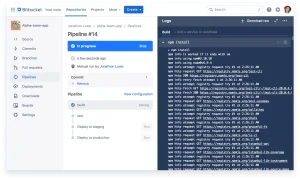
Flexible deployment formats, limitless private repositories, code collaboration, and other aspects of Bitbucket make it an excellent tool. It offers several features, including code search, issue tracking, Git big file storage, Bitbucket pipelines, integrations, and smart mirroring, among others. Bitbucket allows users to arrange their repositories into projects, allowing them to focus on their objective, process, or product more easily.
To Sum up
The best software tools for software development are discussed in this article. All of the tools are categorized according to their use in the software development process. To assist you in making an informed decision, we have reviewed the advantages and disadvantages of each platform.
Now it all boils down to selecting the finest tools for your company. It varies depending on the needs and considerations such as pricing, value for money, and customer service, among others. We hope this article on software tools for software development helps you pick the right one and get the most out of your tools.
If you need extra help from InApps Technology to realize your software projects, please click the FREE PROPOSAL on the top right corner. We’ll be happy to assist in any way we can.
Let’s create the next big thing together!
Coming together is a beginning. Keeping together is progress. Working together is success.




